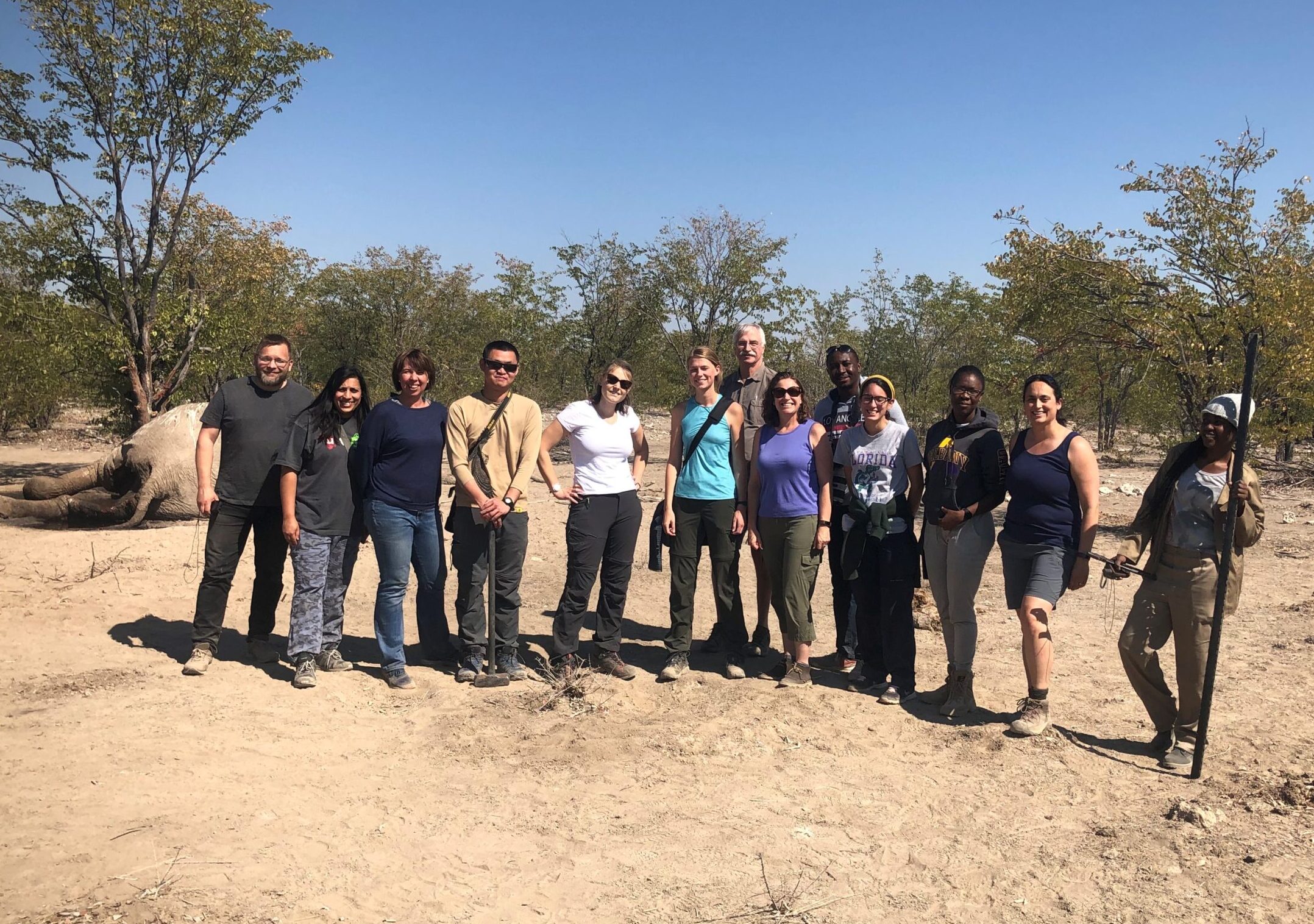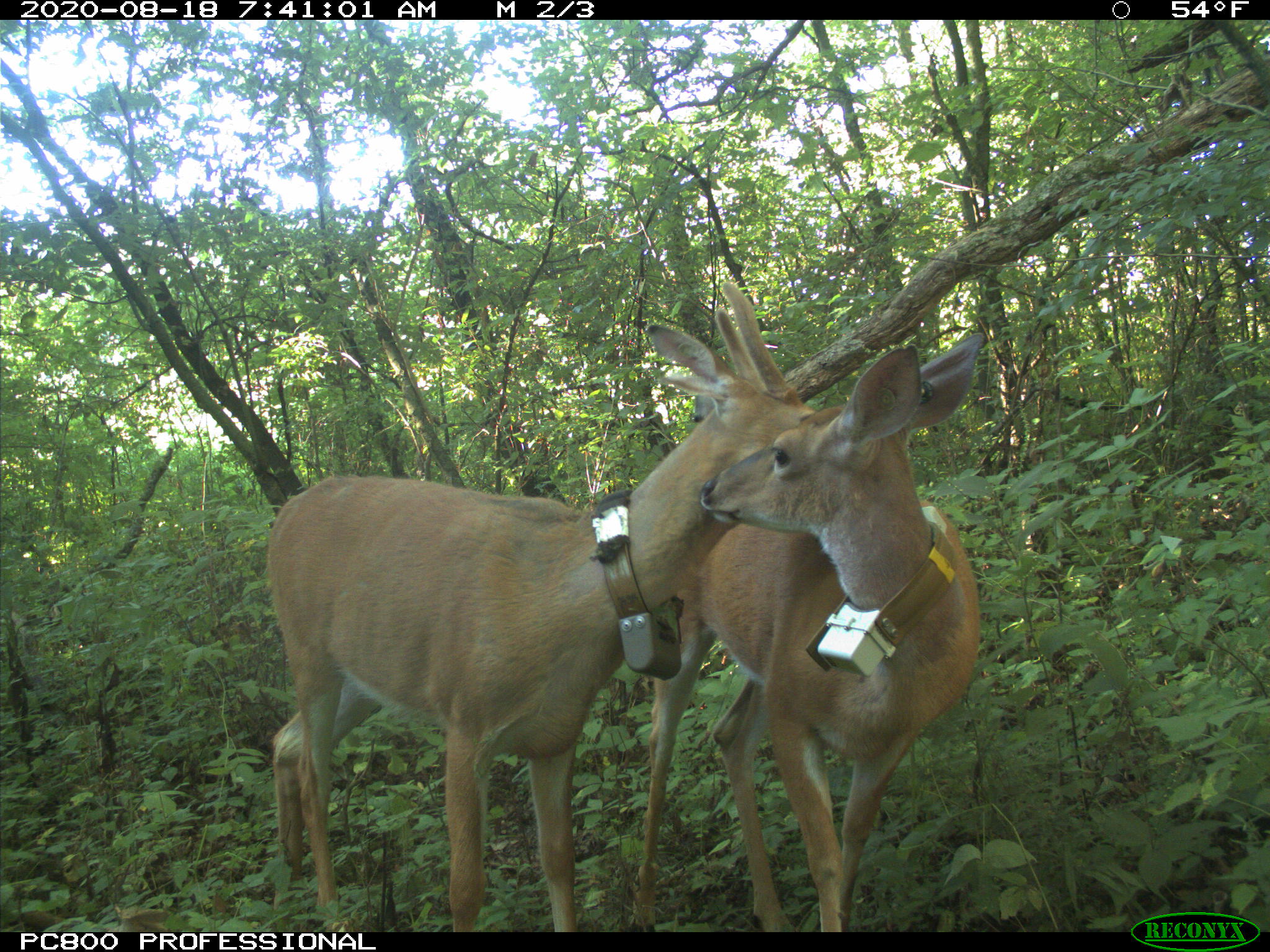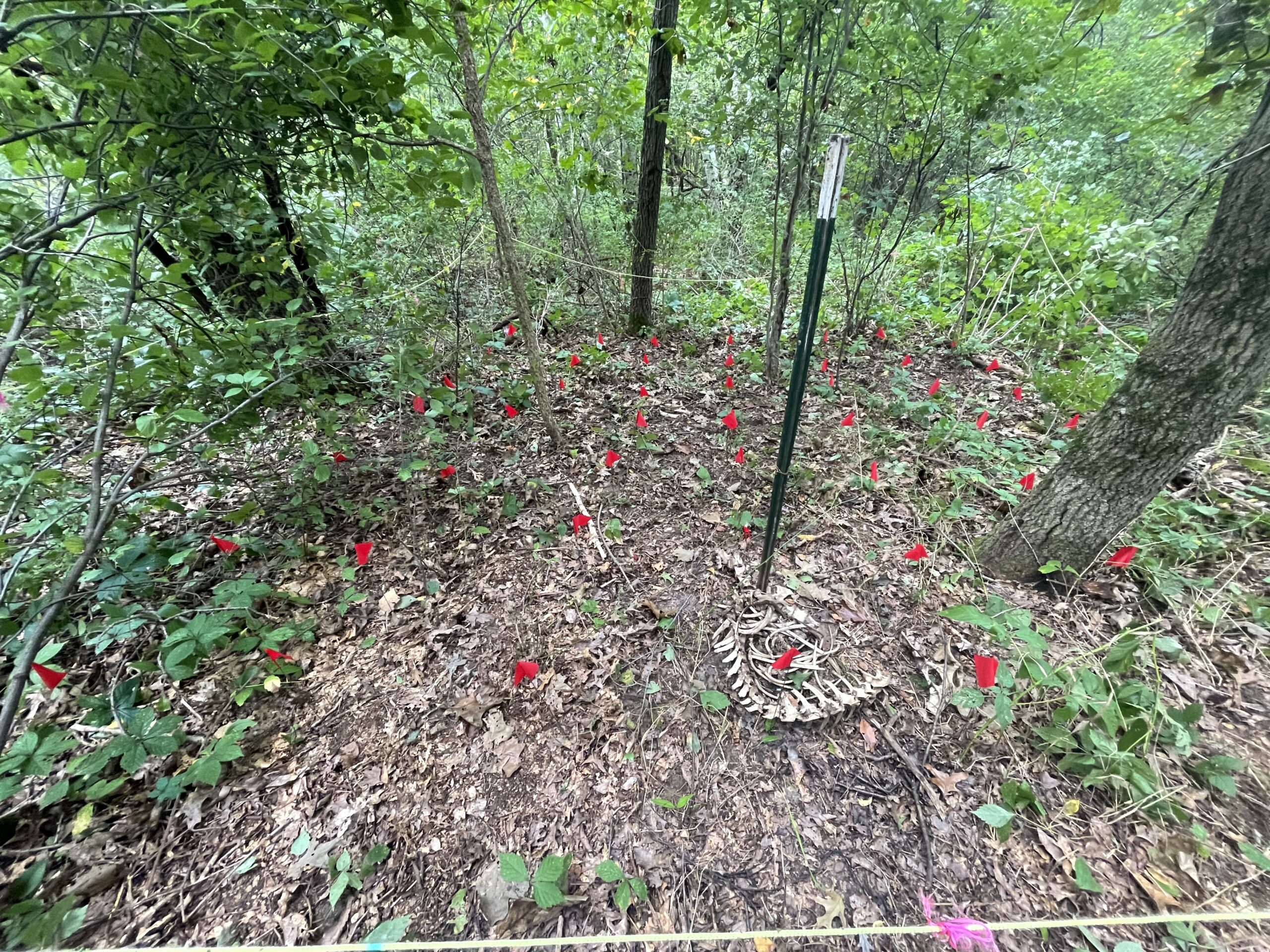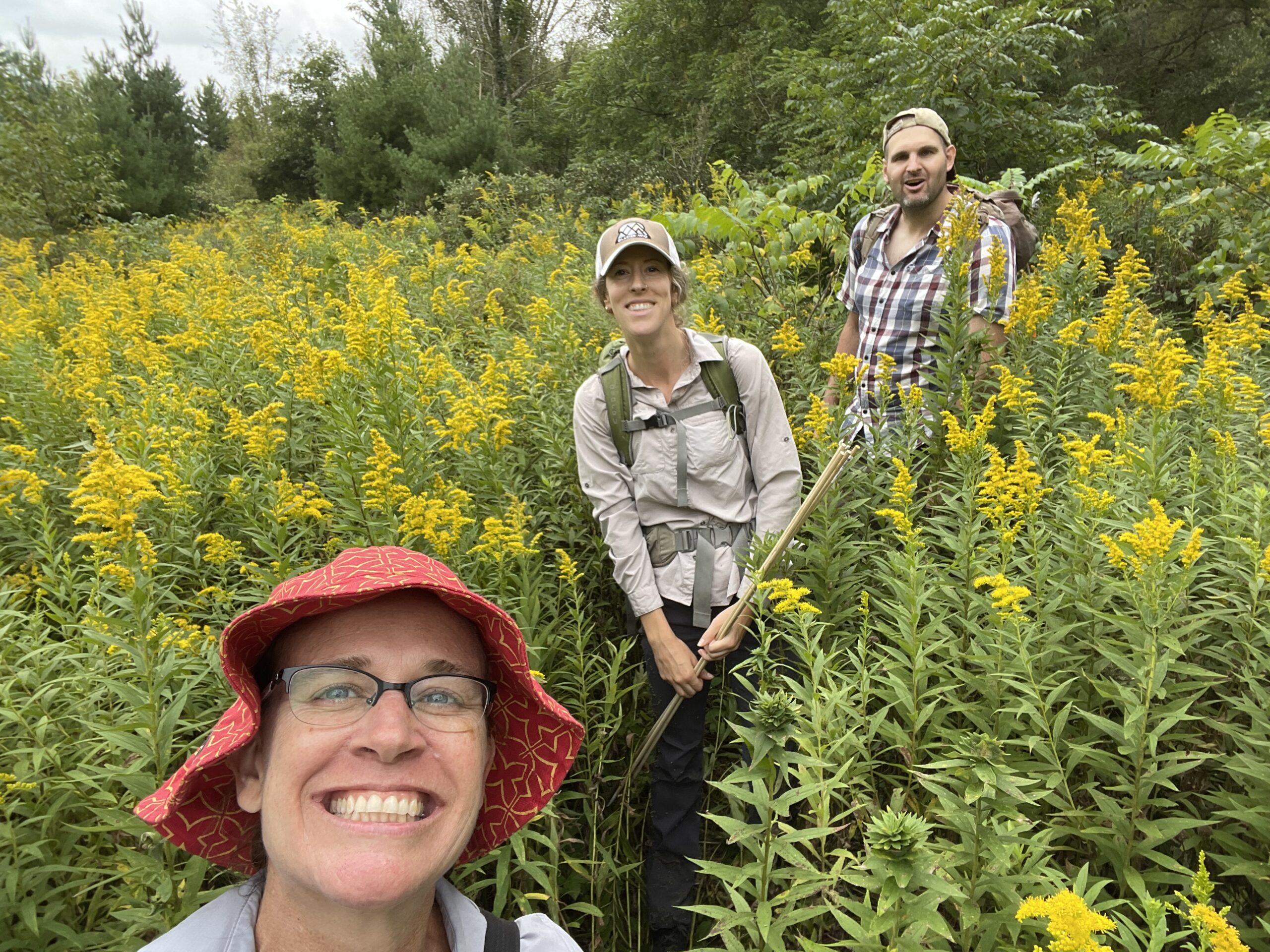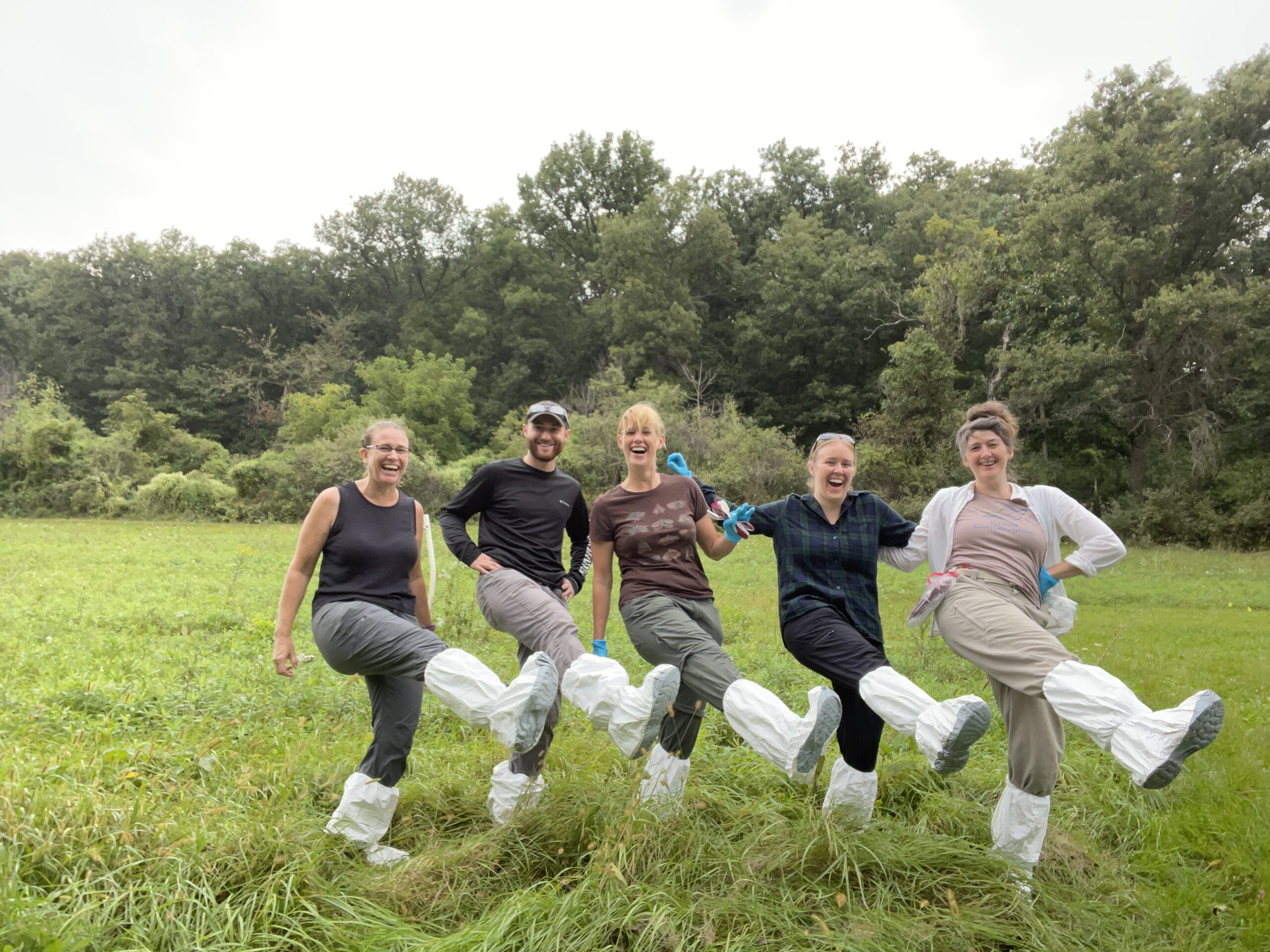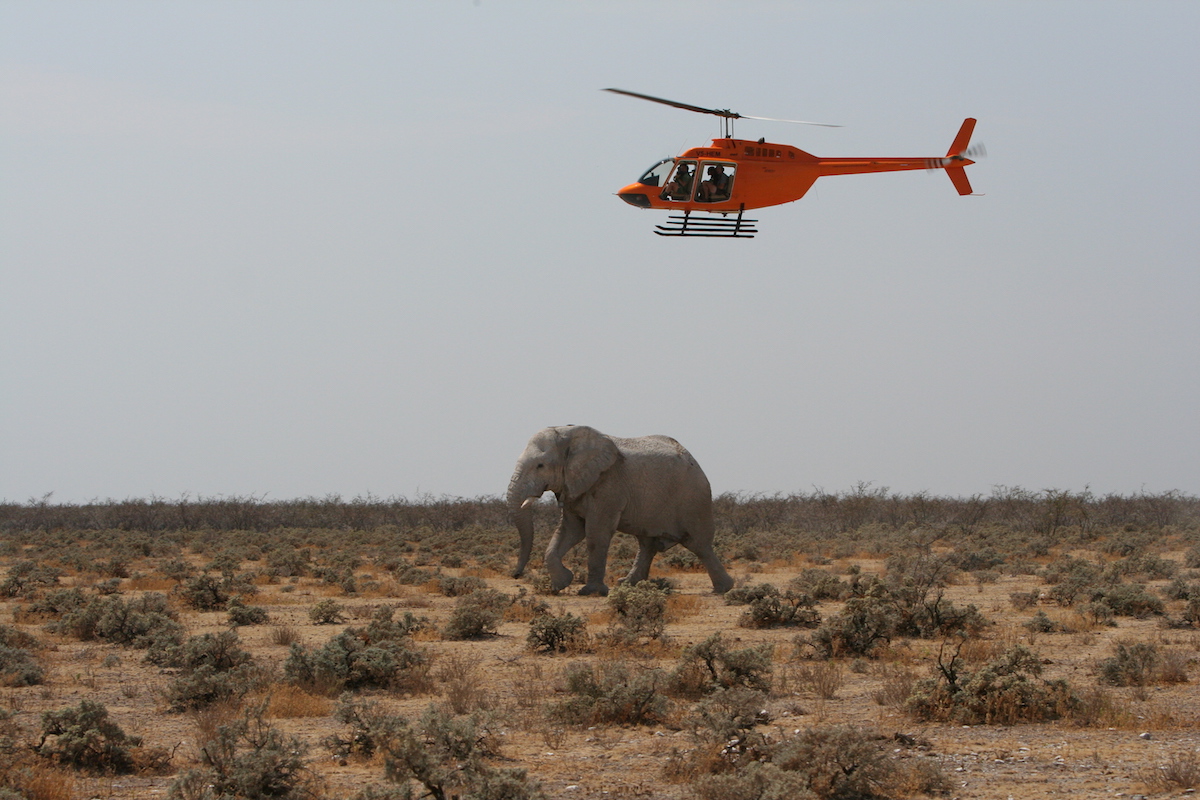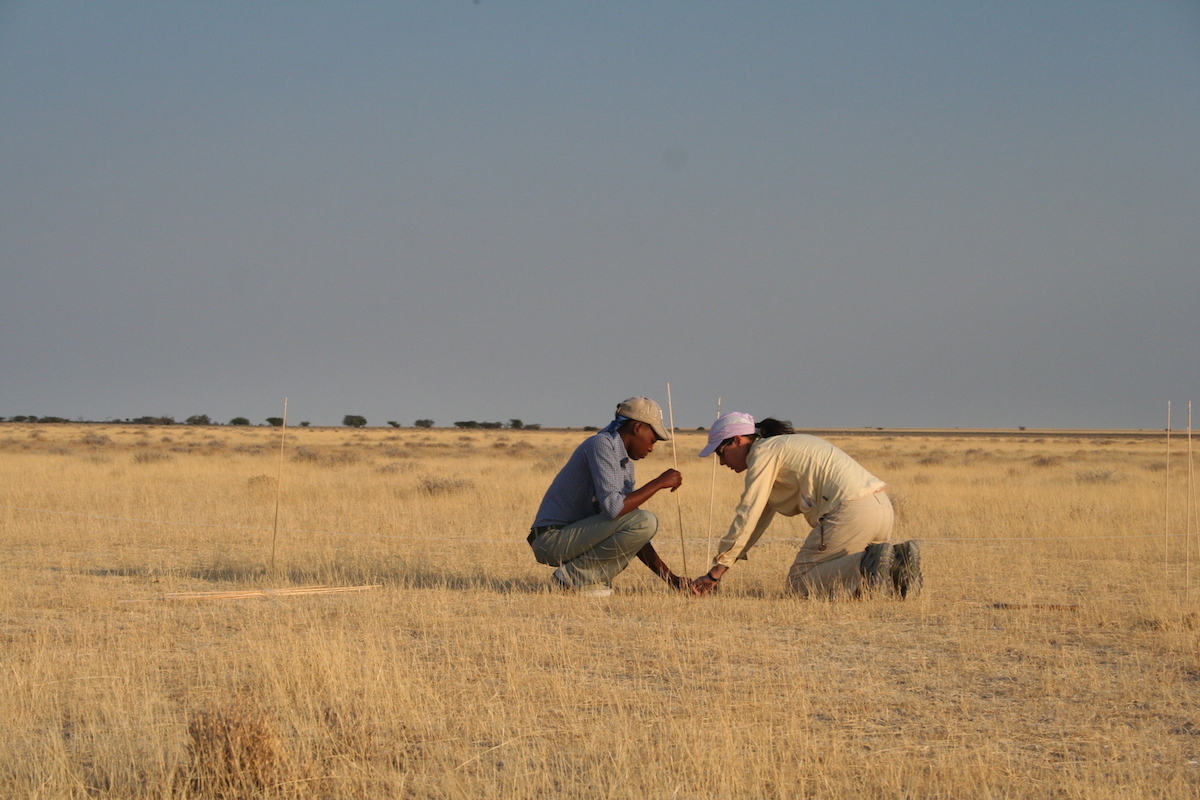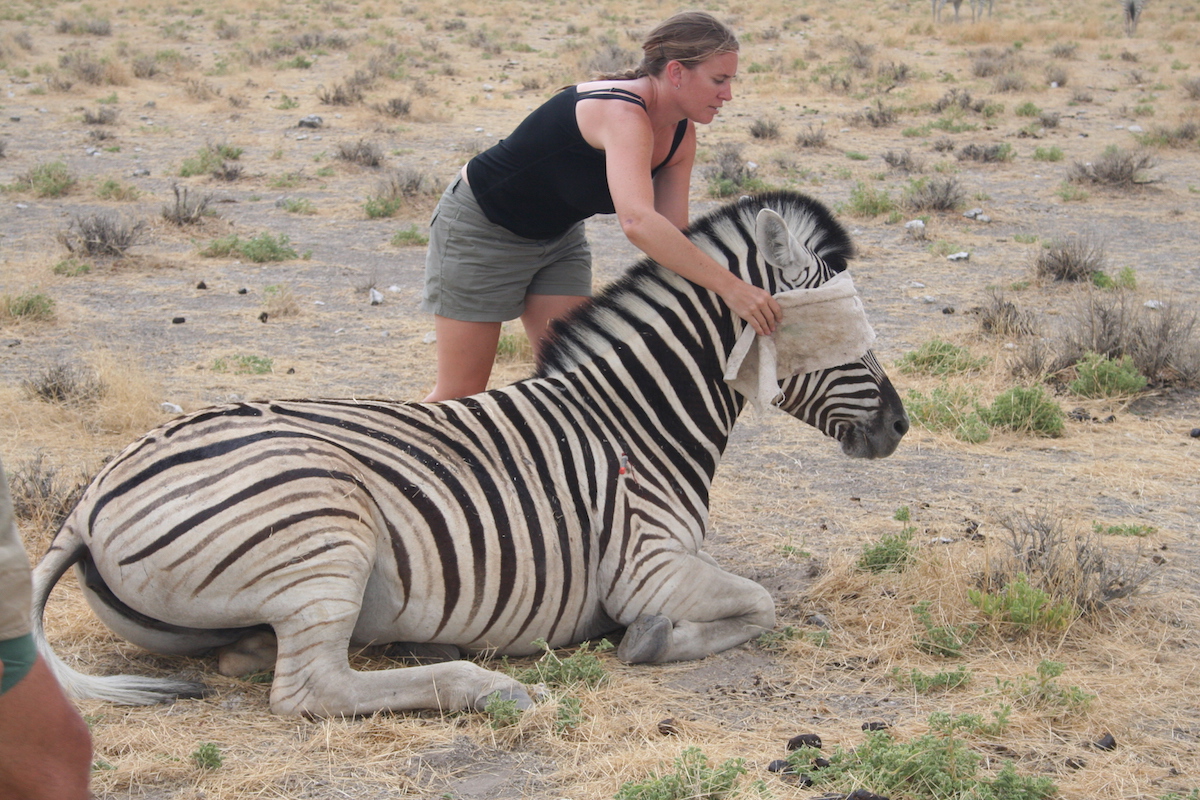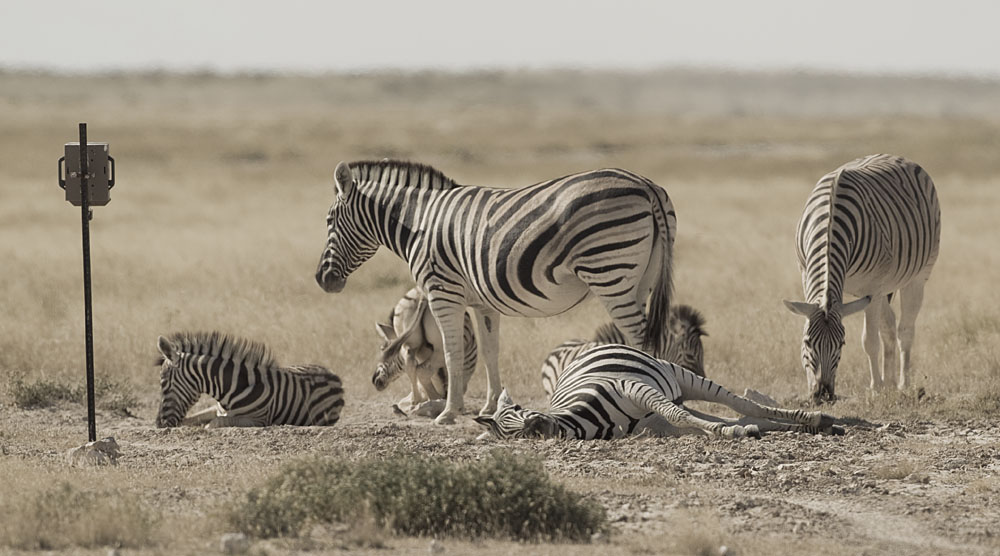Research Areas
Our current research is focused on chronic wasting disease (CWD) in white-tailed deer (Odocoileus virginianus) in Wisconsin and anthrax in herbivorous mammals in Namibia and South Africa.
Chronic wasting disease (CWD) in white-tailed deer
The Turner lab Deer Ecology and Disease (DEAD) team studies the prion disease chronic wasting disease (CWD) in Wisconsin white-tailed deer, investigating how host ecology and behavior and prion persistence affect disease transmission risk. The CWD prion, like the anthrax bacterium, is a lethal disease agent that is highly persistent in the environment. Work in the Turner lab focuses on assessing transmission risk at deer carcass sites and locations where deer may congregate or shed prions into the environment. We also investigate how direct versus indirect transmission, and movement ecology of deer hosts and carnivores that feed upon deer, may alter CWD transmission dynamics. Our CWD program is funded by the U.S. Department of Agriculture, the U.S. Geological Survey, and the Wisconsin Department of Natural Resources.
Anthrax in African wildlife
Our research group and collaborators study anthrax disease dynamics and pathogen evolution comparing two savanna ecosystems in southern Africa. This project links within-host, between-host, and in-environment processes, to understand how conflicting selective pressures impact pathogen diversity, host resistance and disease incidence, and ultimately, how these processes drive variation in host-pathogen co-evolution across large spatial scales. This NSF-funded project builds upon detailed records of host population dynamics, anthrax mortalities, environmental factors, and data collected on pathogen diversity, host ecology, behavior, physiology and immunology. This project funding was completed in 2024, but we are still publishing results of this study.

